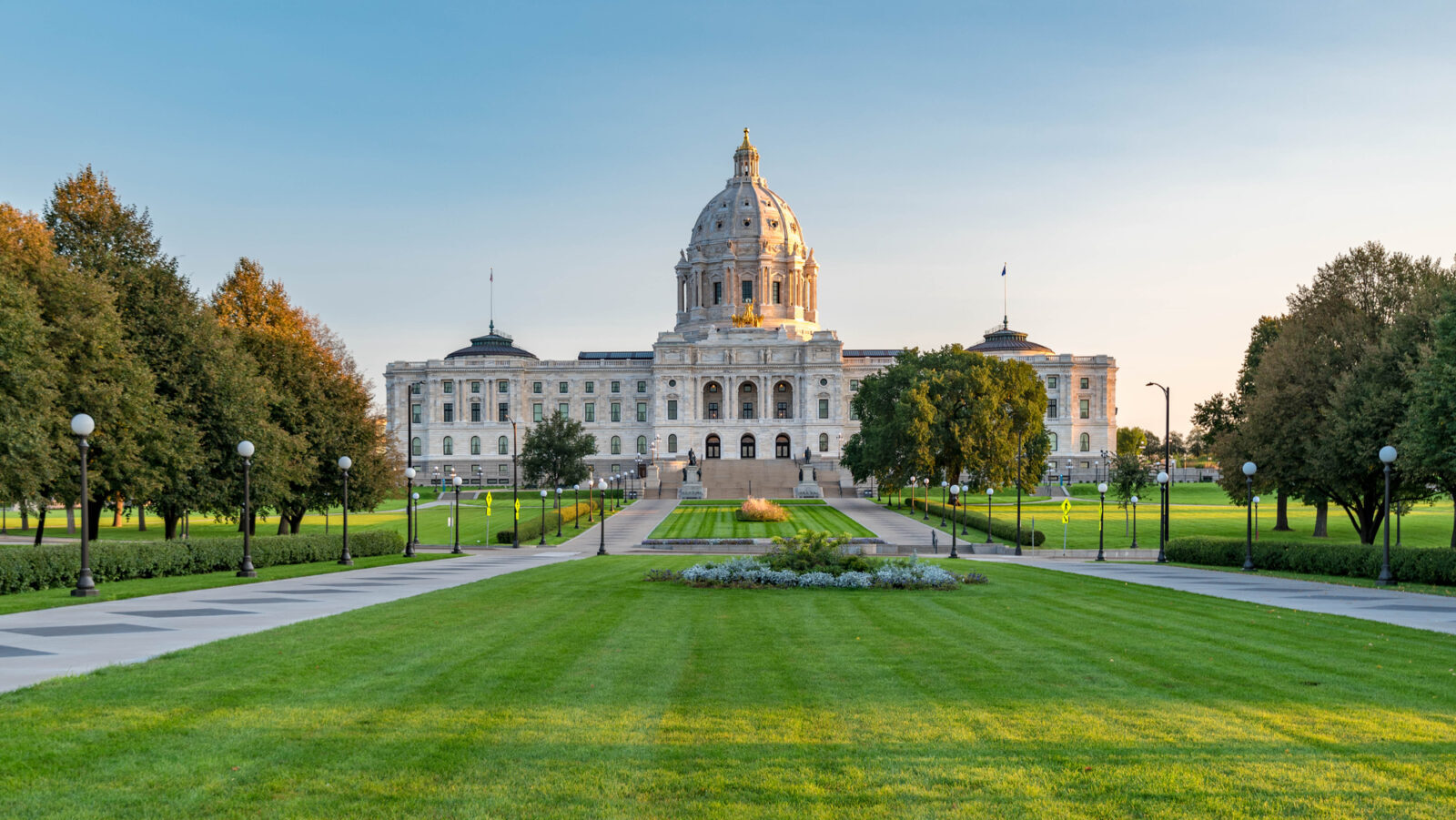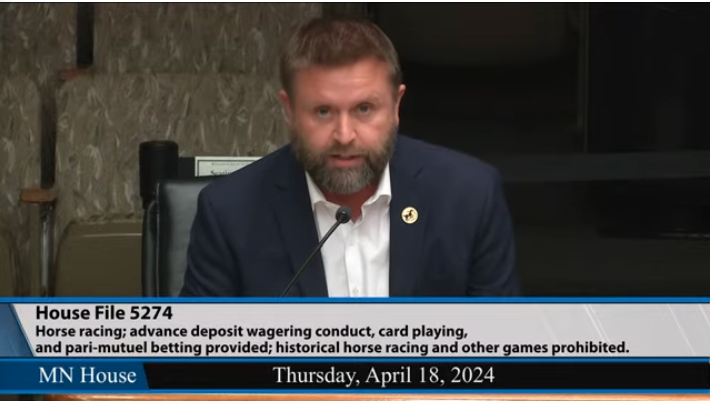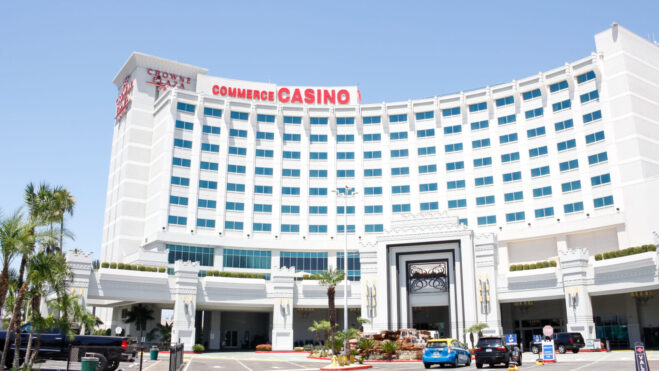Minnesota Madness: Bill To Ban Historical Horse Racing Inches Forward, Amid Sports Betting Debate And Table Games Lawsuit
“I believe that it is the legislature’s role to determine what gambling is permissible,” said Rep. Zack Stephenson in pushing for an HHR ban.
5 min

Minnesota Rep. Zack Stephenson closed Thursday’s hearing in the House State and Local Government Finance and Policy Committee with a reference to Schoolhouse Rock! Stephenson was alluding to the song “I’m Just a Bill” as he made the point that, as far back as he could remember, he was taught that the legislature makes the laws.
The bill Stephenson is sponsoring, HF 5724, was narrowed during Thursday’s meeting to focus strictly on historical horse racing (HHR) machines, a form of gambling that many compare to slots, and that the Minnesota Racing Commission voted to legalize this month for use at the state’s horse tracks.
Stephenson’s point: The racing commission doesn’t decide what forms of gambling are allowed; he and his colleagues in elected office do.
“I believe that it is the legislature’s role to determine what gambling is permissible,” he stated.
HF 5724 aims to make HHR machines explicitly illegal, and Stephenson succeeded in convincing the slight majority of his colleagues to heed the lessons of Schoolhouse Rock!, as the votes were 7-5 in favor (one voter excused), allowing the bill to move forward and be re-referred to the General Register.
This was simply the latest development in a series of contentious issues surrounding gambling expansion in the North Star State this year, with the tracks and tribes at odds and sports betting legalization hopes caught in the crossfire.
The great HHR debate
The way HHR machines work is a gambler pays to play, selects a horse without knowing what race will unfurl, and the machine selects an actual race from the past and shows it. So there’s real horse racing involved (in video form), but the gamble is one of pure chance.
In addition to Stephenson and other legislators, six witnesses spoke during Thursday’s hearing, representing both sides of the issue. Those in favor of HF 5724 focused in part on HHR machines being akin to slots. They’re “virtually identical,” insisted Minnesota Indian Gaming Association (MIGA) Executive Director Andy Platto.
Rep. John Koznick, who opposes HF 5724, said, “I think it’s not accurate to call it slot machines” and argued that HHR players are competing against other bettors backing other horses, not against the house.
Most of those opposed to the bill were representatives of the horse racing industry in Minnesota, insisting that their sport and their tracks are in financial trouble and HHR machines offer them a lifeline.
“We’re not asking for a handout. We’re just asking for a chance to compete, a chance to survive,” said Justin Revak, president of the Minnesota Horsemen’s Benevolent & Protective Association. “Why doesn’t the state of Minnesota want racing to thrive?”

Added Richard Bremer, vice president of the Minnesota Thoroughbred Association, “[Permitting HHR] is the last, best hope to save this industry in Minnesota.”
Jack Meeks, the chairman of Citizens Against Gambling Expansion, referred to permitting HHR at the state’s two horse tracks as adding 1,000 slot machines, which “will represent one of the largest expansions of gambling in Minnesota history.” He added, “We believe that you, members of the Minnesota legislature, determine the gambling policy in this state.”
Countering that ideology, Randy Sampson, chairman and CEO of Canterbury Park, said, “Race tracks need to keep adapting if we are to maintain purse levels. … The bills are picking who will win and who will lose, expanding gaming for some and restricting gaming for others.”
Bill running at brisk pace
In the end, the main point of Stephenson and his bill’s supporters was that the end-around executed by the racing commission to approve HHR at Canterbury Park and Running Aces ran counter to the state’s legislative process. As Platto said, “The commission decided to deliberately circumvent legislative authority and unilaterally authorize slot machines at the state’s horse tracks.”
Rep. Koznick attempted Thursday to slow things down by proposing to move the bill to the Economic Development Committee, but the vote on that was 7-4 against, with two voters excused. “We should really slow down, have a broader discussion,” Koznick said. “We’re moving very quickly.”
Despite Koznick’s protests, the legislation is continuing to move quickly, as it has now been re-referred to the General Register and is effectively being fast-tracked to the House floor.
However, the timeline of when it will be heard on the House floor is unknown, and if it passes there it still has to get through the Senate. The Minnesota legislative session ends May 20.
Three tribal casinos sued
While Canterbury Park had a representative present Thursday, the state’s other horse racing operator, Running Aces, conspicuously did not.
But Running Aces made its presence felt in the muddled Minnesota gambling scene this week in other ways.
On Tuesday, Running Aces filed a lawsuit in U.S. District Court alleging violations of the RICO Act by a trio of tribal casinos in Minnesota offering table games that Running Aces asserts they are not legally permitted by the state to offer. The casinos are Grand Casino Hinckley, Grand Casino Mille Lacs, and Treasure Island Resort & Casino.
The tribal casinos are permitted to deal blackjack, but, according to Running Aces, not to deal “class III” card games such as Three Card Poker, Ultimate Texas Hold’Em, Pai Gow, Let it Ride, and other forms of poker in which players compete against the house. These games are not to be confused with the more familiar forms of poker such as no-limit hold’em popularized on TV since the early 2000s, played peer-to-peer with the house taking a “rake” from each pot.
Running Aces says the two Grand Casinos are not permitted by their compacts with the state to offer these games, and that Treasure Island just amended its compact last October to allow these games but had been dealing them prior to that.
The lawsuit alleges the tribes “have vigorously tried to block Running Aces’ efforts to lawfully expand its gaming operations,” and by expanding their own offerings, “have been able to attract many patrons who would otherwise have played card games at Running Aces, thereby depriving Running Aces of substantial revenue and profits — both from lost card gaming and from lost accompanying spending on food, lodging, and live entertainment.”
Whether Running Aces has a case or not, the perception among many close followers of the situation in Minnesota is that the tracks are getting litigious in part as retaliation for them not being included in the state’s sports betting legislation.
Minnesota is one of the few remaining states that has at least a faint hope of legalizing sports betting in 2024, although there appear many more roadblocks on that path than there are to passing Stephenson’s bill prohibiting HHR.
Is it hypocritical for a horse track to sue to stop expansion of gaming by the tribal casinos, while the tracks are actively attempting to expand the gambling options on their own properties? Or is this just capitalism at work, everyone fighting for their share and seeking to have different forms of gambling — table games, HHR machines — considered under different parameters?
Numerous conflicts around gambling expansion are emerging simultaneously in Minnesota, and the remainder of the legislative session figures to prove interesting. For now, HF 5724 is just a bill. It could be, as the song says, “a long, long journey” — though maybe not in this case, if enough legislators want to flex their muscles over whose job it is to determine the laws.






